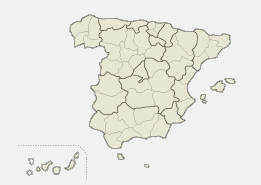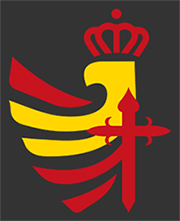A brave heart

Lieutenant Arturo Muñoz Castellanos
His heart is still alive, and it must be easy to distinguish him at a glance when is walking down the street in a body other than his own
The blood that makes hearts beat was light, and the miracle of existing came from the air. Many people had been wounded. About to die, and holding on to that only hope, they dreamt about the arrival of the plasma and medicines, so necessary for the hospitals of Mostar, a city devastated by war, placed at both sides of the border: the Bosnian-Muslim and the Bosnian-Croatian hospital. And all that, being aware of the fact that blood does not ask for documents or papers, it does not distinguish between races or religions, and does make questions that have hate as an answer.

Arturo's blood, both the one he had running through his veins and the one inside the lorries after collecting the plasma and the medicines in Metkovic did not do that. He had already shown it a few days before, on 3rd May, when he had to protect Muslim refugees on the way Jablanica-Konjic from the Bosnian-Croatian forces, and when, four days later, on 7th May, he had to protect Croatian civilians from the Bosnian-Muslim attack to Rodesine. As Arturo would say, the Legion does not distinguish between rich or poor, old or young. It protects everyone. That is the Legion. And there it was with its soldiers from the 2nd Section of Company 'Alba.'
11th May was marked by the plan fate has for the brave. He went to sleep without knowing what would happen.
On 10th May 1993, Arturo receive the order to collect the blood in Mektovic. After collecting it, they drove to the base of Medjugorje, where the containers to keep it were located. He did not know that 11th May was marked in the calendar by the plan fate has for the brave. So he went to rest unaware of the wounds that would cover his skin the following day.

On 10th May 1993, Arturo receive the order to collect the blood in Mektovic. After collecting it, they drove to the base of Medjugorje, where the containers to keep it were located. He did not know that 11th May was marked in the calendar by the plan fate has for the brave. So he went to rest unaware of the wounds that would cover his skin the following day.
He already knows that the Neretva path is called the 'path of death', because a front in Mostar has just been created, in which the parts are fighting fiercely. Meanwhile, thousands of non-combatant civilians are trapped as prisoners in broken glass, demolished walls and continuous firing from fussiles and mortars that make shapeless injuries in the hearts, making question that have hate as an answer.
Blood does not ask for documents or papers, it does not distinguish between races or religions, and does not make questions that have hate as an answer
11th May has come, and Lieutenant Arturo Muñoz Castellanos writes down with a pencil on his notebook: The section leaves the base of Medjugorje at 11:35, toward Mostar. First of all, he will stop at the Bosnian-Croatian hospital to leave plasma and medicines, and then he will do the same at the Bosnian-Muslim hospital. Blood does not ask for documents ot papers to deliver life. It does not distinguish between races or religions, and does not make questions that have hate as an answer. That is the Legion. He knows, since he experienced it, that on 9 May the road from Dracevo to Jablanica was closed at the level of Mostar due to the violent combats. That is why that morning he and his company are added to the 'Austria' company to try to reopen the way to Jablanica. So he will not be surprised by what he will see there.
He will never know that 'the path of death' will soon be called 'the path of life', and the Bosnians will call it 'the Spaniards path.'
The Neretva drives them along tunnels, winding curves and a powerful valley that holds the road, scratched by the explosions that destroy it, without conviction but with rage. He will never know that 'the path of death' will soon be called 'the path of life', and the Bosnians will call it 'the Spaniards path.'

The vehicles enter the boulevard and cross it, knowing that inside Mostar there is little blood and much fire. The soldiers head to Mostar and its hospitals to deliver blood and interpose between the enemies to diminish the firing.
They come in through the Donja Mahala neighbourhood and go up through Gojka Vukovica. The Neretva River, with its permanent emerald colour, awaited pacient, as it hasdone over the centuries. The convoy sent by Arturo reaches the Bosnian-Croatian hospital, unload sthe half of the plasma and the medicines in its first destination and picks up a wounded civilian, all that under heavy fire from mortars and fussiles.
The air is filled with dust and sand as they head towards the Bosnian-Muslim hospital to unload their part of blood and medicines. In the meantime, from HVO Bosnian-Croatian positions, innumerable grenades fall, filling the air with shrapnel.
As they unload the material at the Bosnian-Muslim hospital, he sees a wounded civilian and decides to take him. He has to walk, as the barricades do not allow him to access the inside with the vehicle. And so he does. He leaves the vehicles protected and walks towards him. The fire is still very intense. When he returns to the vehicles, one of the many mortar grenades that fell on them during the jourmey reaches him, leaving him wounded, with the arms like two wings, next to the hospital where he had delivered the blood to bring life, and also leaving his life there and his 28 years. In Ceuta, his wife does not know yet that Arturo is hurt. Then, she looks at the ring he gave to her shortly before departing to Bosnia. It will be a long time after she can wear it again.
The Muslim doctors are the first in seeing him. They put all the effort in saving the Spanish Blue Helmet who has just brought enough blood and medicines to save lives. Doctors from hospitals in war know that wounds do not distinguish between languages or religions, and shrapnel tears the flesh without making distinctions either.
He travelled to Spain still alive, and when he was taken to the 'Gómez Ulla' military hospital in Madrid he started delivering a heart, two lungs, a liver... to anyone who could be in need. As expected, his heart is still alive, and it must be easy to distinguish him at a glance when is walking down the street in a body other than his own, since it is easy to see when someone has a brave heart inside.
ARMY UNITS
- Araba Álava |
- Albacete |
- Alicante |
- Almería |
- Asturias |
- Ávila |
- Badajoz |
- Barcelona |
- Burgos |
- Cáceres |
- Cádiz |
- Cantabria |
- Castellón |
- Ceuta |
- Ciudad Real |
- Córdoba |
- A Coruña |
- Cuenca |
- Girona |
- Granada |
- Guadalajara |
- Gipuzkoa |
- Huelva |
- Huesca |
- Islas Baleares |
- Jaén |
- León |
- Lleida |
- Lugo |
- Madrid |
- Málaga |
- Melilla |
- Murcia |
- Navarra |
- Ourense |
- Palencia |
- Las Palmas |
- Pontevedra |
- La Rioja |
- Salamanca |
- Segovia |
- Sevilla |
- Soria |
- Tarragona |
- Santa Cruz de Tenerife |
- Teruel |
- Toledo |
- Valencia |
- Valladolid |
- Bizkaia |
- Zamora |
- Zaragoza



